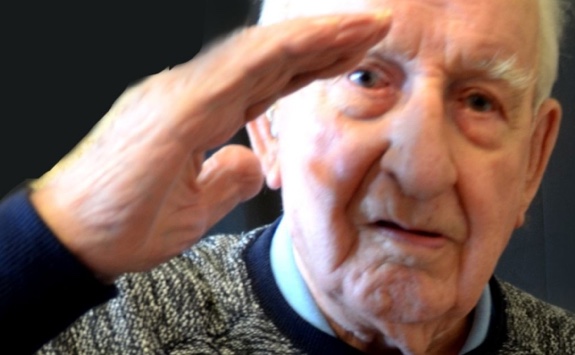Dementia and Imagination
Exploring the impact of visual arts activities for people living with dementia.
The Dementia and Imagination project explored the impact of artist-led visual arts activities for individuals living with dementia.
About the research project
Participants attended a series of 12, one hour, weekly arts activities. The activities took place in three parts of the UK: in the North East of England (where participants lived in care homes), in Derbyshire (where participants were in hospital settings), and in North Wales (where participants lived at home and the activities took place in local cultural venues).
The project team came from diverse disciplinary backgrounds and a mixed methods approach was taken. Impact was considered in terms of wellbeing, quality of life, and social connectivity. There was also a strand of public engagement activity throughout the project.

Research findings
The Newcastle University team focused on the qualitative data. The sessions were designed to be forward-looking. Nonetheless, participants were observed to draw on personal and shared historical narratives in order to engage in the activities.
The results suggest that the activities:
- supported the resilience of the participants
- allowed them to express a narrative identity
- supported (embodied) communication between participants and carers
- had impacts on carers which could influence how the carers responded to the person with dementia in the future
Funder: Jointly funded by AHRC (Connected Communities fund) and ESRC
Duration: April 2014 to August 2017
PI and further team:
- Prof. Andrew Newman (CI) - Media, Culture, Heritage, School of Arts and Cultures
- Dr Anna Goulding (RA) - School of Medical Education
- Dr Bruce Davenport (RA) - Media, Culture, Heritage, School of Arts and Cultures
- Dr Marianne Wilde (RA) - Policy, Ethics and Life Sciences Research Centre
- Carlota González Miguez (RA)
Partners:
Universities:
- Bangor University (project lead)
- Goldsmiths College (University of London)
- Manchester Metropolitan University
- Nottingham University
- Swansea University
Non-academic partners:
- Age Watch
- Alzheimer’s Society
- Arts Council Wales
- BALTIC Centre for Contemporary Art
- Denbighshire County Council Arts Service and the Ruthin Arts Centre
- Derbyshire Community Health Services
- engage Cymru
- Equal Arts
- National Institute for Health Research CLAHRC
- Nottingham Contemporary
- Tyne and Wear Archives and Museums
Further information: Visit the official website for more information, including a full list of publications and presentations.
Publications
Davenport, S.B., Howson-Griffiths, T., Newman, A. and Gill Windle (in preparation) The appropriation of visual arts activities for people with dementia by family members and family caregivers
Davenport, S.B., Howson-Griffiths, T., Taylor, K., Newman, A., Parkinson, C. and Gill Windle (submitted) Arts activities for people with dementia: Expressions of personal identity and the practices of care in residential care settings
Newman, A., Goulding, A., Davenport, B., and Windle, G. (2019). The role of the visual arts in the resilience of people living with dementia in care homes. Ageing and Society, 39(11), 2465-2482. doi:10.1017/S0144686X18000594
Newman A, Goulding A. (2018) Narrative representations of the self: Encounters with contemporary visual art. In: Walker A, ed. The New Dynamics of Ageing. Bristol, UK: Policy Press, pp.263-284.
Goulding A, Davenport B, Newman A, (2018) ed. Resilience and ageing: creativity, culture and community. Bristol: Policy Press
Newman A, Davenport B, Howson-Griffiths T. (2018) Narrative identity and resilience for people in later life with dementia living in care homes: The role of visual arts enrichment activities. In: Goulding, A; Davenport, B; Newman, A, ed. Resilience and Ageing: Creativity, Culture and Community. Bristol: Policy Press
Davenport, B., Newman, A., & Moffatt, S. (2021). The Impact on Older People’s Wellbeing of Leaving Heritage Volunteering and the Challenges of Managing this Process. The Qualitative Report, 26(2), 334-351.
https://doi.org/10.46743/2160-3715/2021.4499
Parkinson, C. P., Windle, G., & Taylor, K. (2017). Dementia and Imagination: Research Informed Approaches to Visual Arts Programme. Retrieved from Manchester, UK: http://www.artsforhealth.org/resources/dementia-and-imagination.pdf
Windle, G., Gregory, S., Howson-Griffiths, T., Newman, A., O’Brien, D., & Goulding, A. (2017). Exploring the theoretical foundations of visual art programmes for people living with dementia. Dementia.
Windle, G., Joling, K., Howson-Griffiths, T., Woods, B., Jones, C., Van de Ven, P., . . . Parkinson, C. (2017). The impact of a visual arts program on quality of life, communication, and well-being of people living with dementia: A mixed-methods longitudinal investigation. International Psychogeriatrics, 1-15. doi:10.1017/S1041610217002162
Newman, A., Baber, M., O’Brien, D., Goulding, A., Jones, C. H., Howson, T., Tischler, V. (2016). Carrying out research across the arts and humanities and social sciences: developing the methodology for Dementia and Imagination. Cultural Trends, 25(4), 218-232.
Windle, G., Newman, A., Burholt, V., Woods, B., O'Brien, D., Baber, M., . . . Tischler, V. (2016). Dementia and Imagination: a mixed-methods protocol for arts and science research. BMJ open, 6(11), e011634.
Windle G, Gregory S, Newman A, Goulding A, O'Brien D, Parkinson C. (2014) Understanding the impact of visual arts interventions for people living with dementia: A realist review protocol. Systematic Reviews, 3(1), 91.
.jpg)